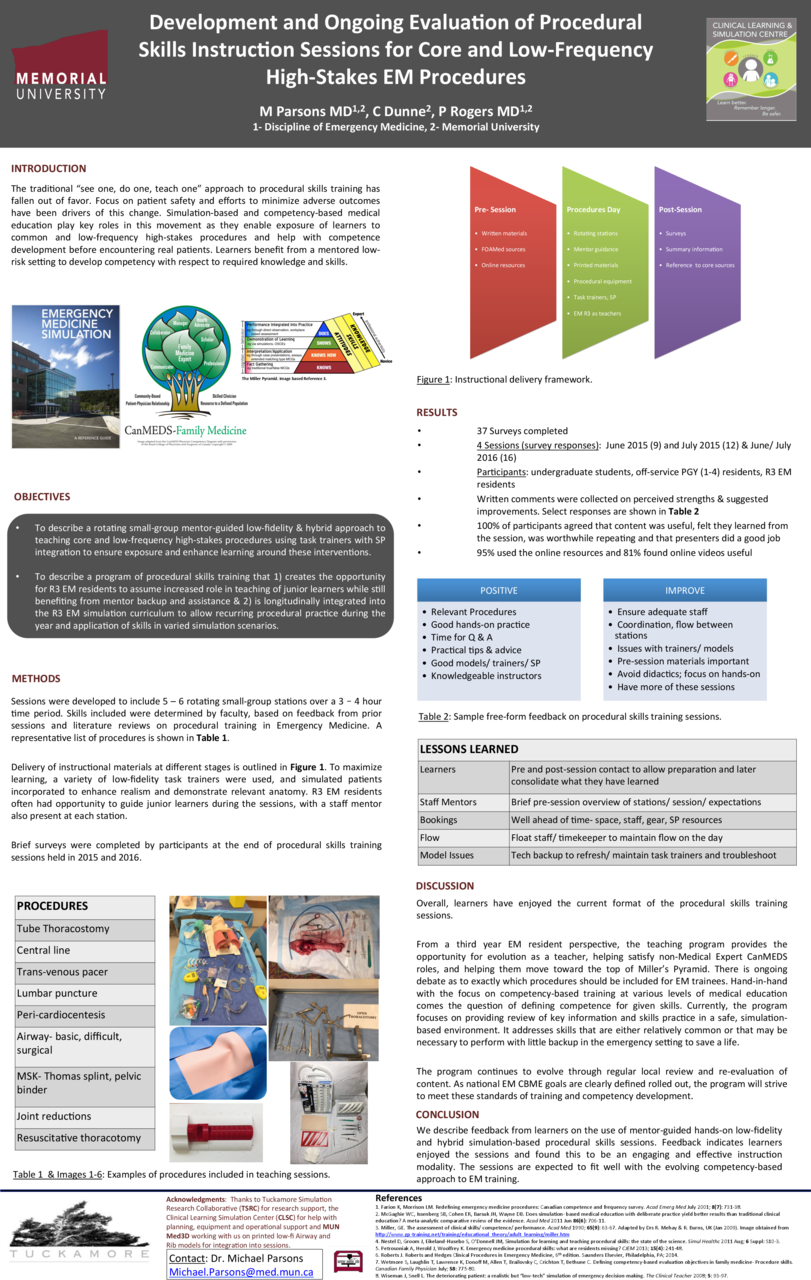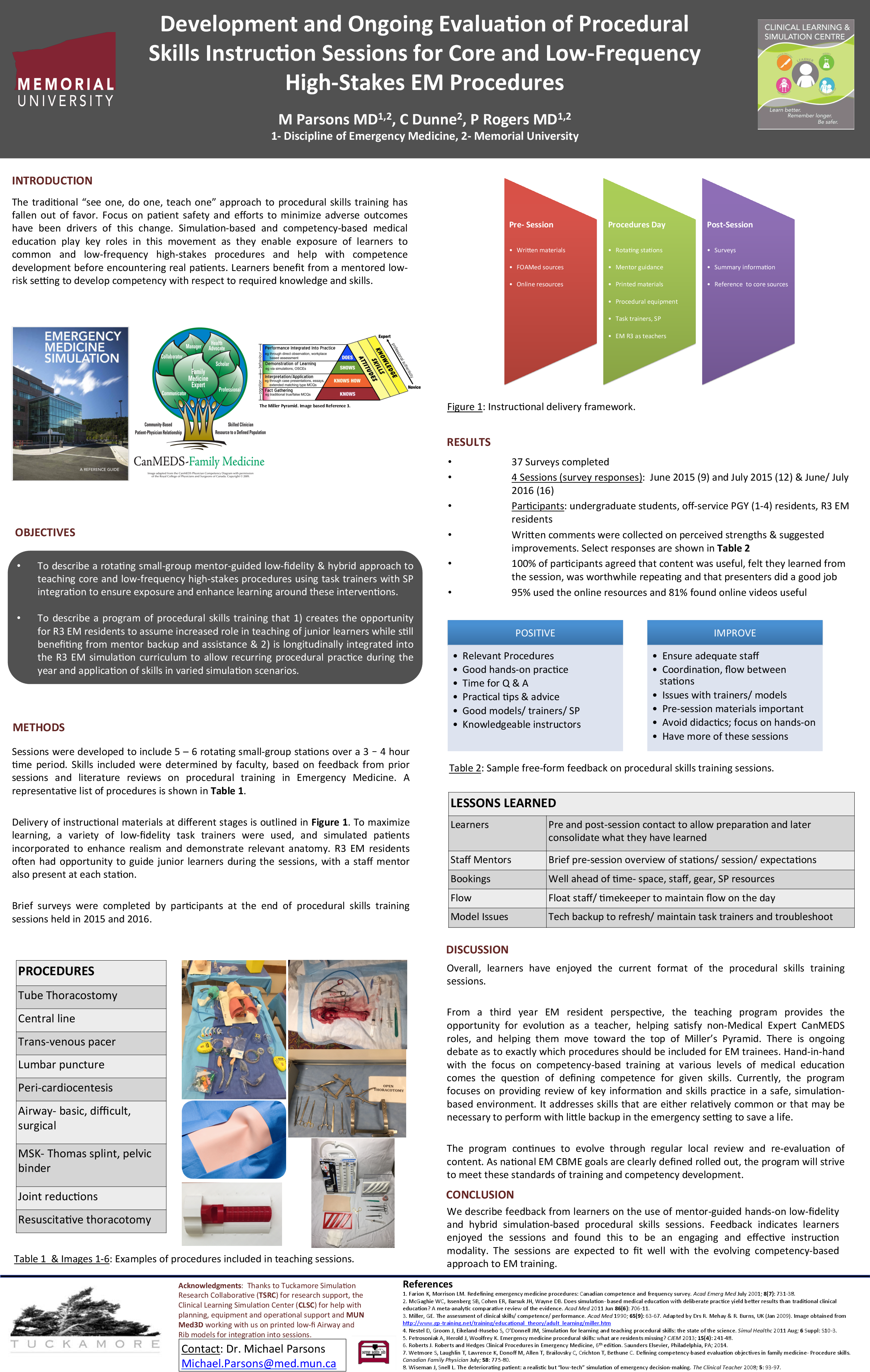Abstract
Presented at: MESC 2017, St. John's, NL
Purpose: The traditional “see one, do one, teach one” approach to procedural skills training has fallen out of favor recently, with patient safety and minimizing adverse outcomes moving to the forefront. Simulation-based and competency-based medical education play key roles in this movement as they can expose learners to both common and low-frequency high-stakes procedures and ensure competence before encountering real patients. Learners get a low-risk setting to develop competency around required knowledge, skills and equipment.
Methods: Brief surveys were completed at the end of procedural skills training sessions held over the past 3 years. The sessions were developed to include 5 – 6 rotating small-group stations over a 4-hour time period. Skills included were determined by faculty, based on feedback from prior sessions and literature reviews around emergency procedural training. Some of the topics included chest tubes, airway intervention, lumbar punctures and trauma interventions. Pre-session learning was accomplished through online learning and brief written materials. Small group session learning allowed individuals to participate in hands-on mentor-guided training, with feedback being provided in real-time. The stations were supplemented with printed materials summarizing key learning points. To maximize learning, a variety of low-fidelity task trainers were used, and simulated patients were incorporated to enhance realism and demonstrate relevant anatomy. R3 EM residents often had opportunity to guide junior learners during the sessions.
Results: During these sessions, learners at different training levels received hands-on mentor-guided training of procedures relevant to emergency medicine practitioners. The surveys were created to assess learners’ perceptions of the session and their educational value. Learners evaluated the value of the sessions, the effectiveness of the instruction, and provided their thoughts on improvements for future sessions. Thirty-eight surveys were collected and will be analyzed for themes to determine areas of improvement for the future.
Conclusion: We describe feedback from learners on the use of mentor guided hands-on low-fidelity and hybrid simulation based procedural skills sessions. Feedback indicates learners enjoyed the sessions and found this to be an engaging and effective instruction modality.






